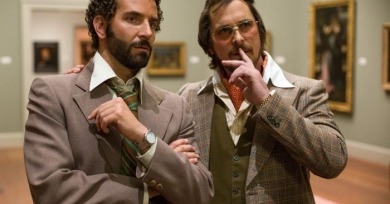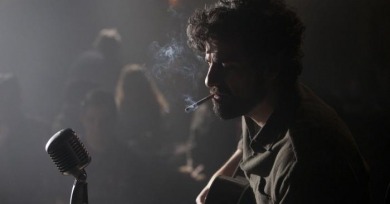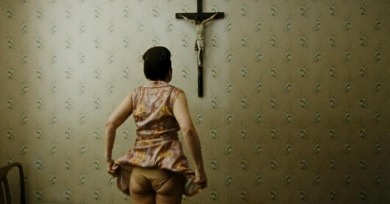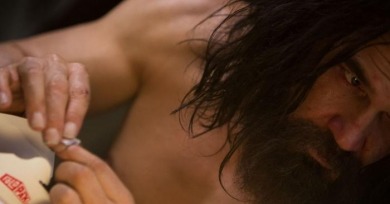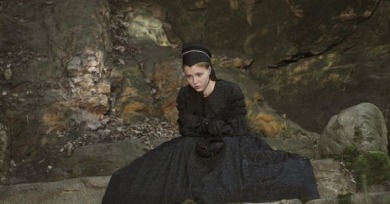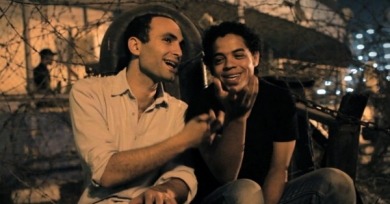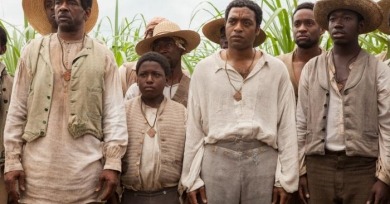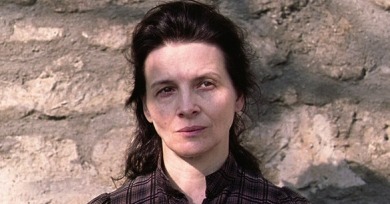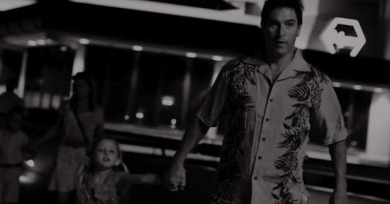Reviews
Based loosely on the true story of an FBI operation targeting public corruption, American Hustle is basically a less exotic, polyester-clad doppelganger for Argo—a lushly produced, seventies-inflected crowd-pleaser about a showbiz-style sting.
Halfway through Alexander Payne’s remarkable Nebraska, a man walks into a newspaper office in his father’s childhood town and learns that the woman who runs the place was the old man’s sweetheart long ago
Theirs is admittedly not an open-arms type of filmmaking, but no one could accuse Inside Llewyn Davis, at once their warmest and most fragile film, of treating its complicated, imperfect protagonist with disdain.
Seidl sees the twenty-first century using the compositional values of the fifteenth, as evidenced in his flat, compressed tableaux, in which cell-like interiors are captured at a stationary medium long-shot, figures held flush in their center.
Only so much can be done with the source material for Spike Lee’s new film. Repellent and deeply stupid, Park Chan-Wook’s decade-old revenge thriller Oldboy is too high on its own bad-boy attitude to be genuinely shocking, and too mean-spirited and bullying toward its audience to be truly enjoyable.
One couldn’t ask for a more Nietzschean antihero than Faust, the intellectual uber-mensch who, his carnal desire awakened, shakes off his guilt and affirms his ego. Faust’s character is so unbound that it is at times confounding.
Much of the film, set at the University of California, Berkeley, feels like one long administrative meeting, an experience that is simultaneously mundane and anxiety-provoking.
Four tableaux and two book-ends form Jia’s candid portrait of contemporary China, about the tragic injustices experienced by the nation’s underprivileged workers.
Blue is so universal in its portrayal of love, so honest about the role that sex plays in becoming an adult, and so painfully accurate in capturing that hollow feeling that follows losing someone against one’s will, that the experience of the film transcends flaws both real and imagined.
The characters that Noujaim selects for The Square prove to be more than symbolic, or bricks in the wall of the movement—they are major players in it, brainstorming ways of expressing and popularizing their goals simultaneous to the film employing them to do the same.
Three movies into his second career as a feature filmmaker, McQueen has leveraged his obvious skills as an installation artist into becoming the modern master of a certain kind of set piece—the literal show-stopper, in which the movie grinds to a halt to beg our applause.
If nothing else, Bruno Dumont’s Camille Claudel 1915 proves that a movie star really is a completely different animal than the rest of us schlubs.
Escape from Tomorrow cannot seem to decide whether it wants to satirize its protagonist’s midlife-crisis buffoonery or position his erratic behavior as somehow symptomatic of an amorphous psychic malaise within the park itself.
Handmaiden of the hegemon or stealth critic of the same? There is evidence for each side in the case against Paul Greengrass.
